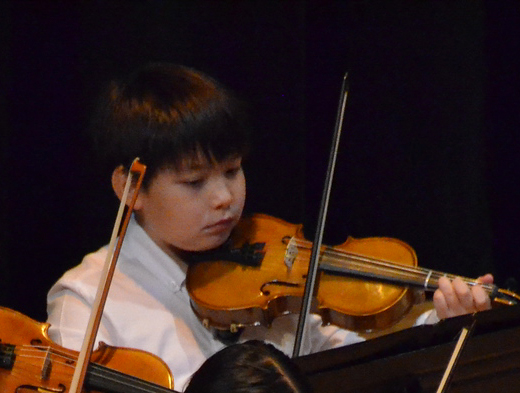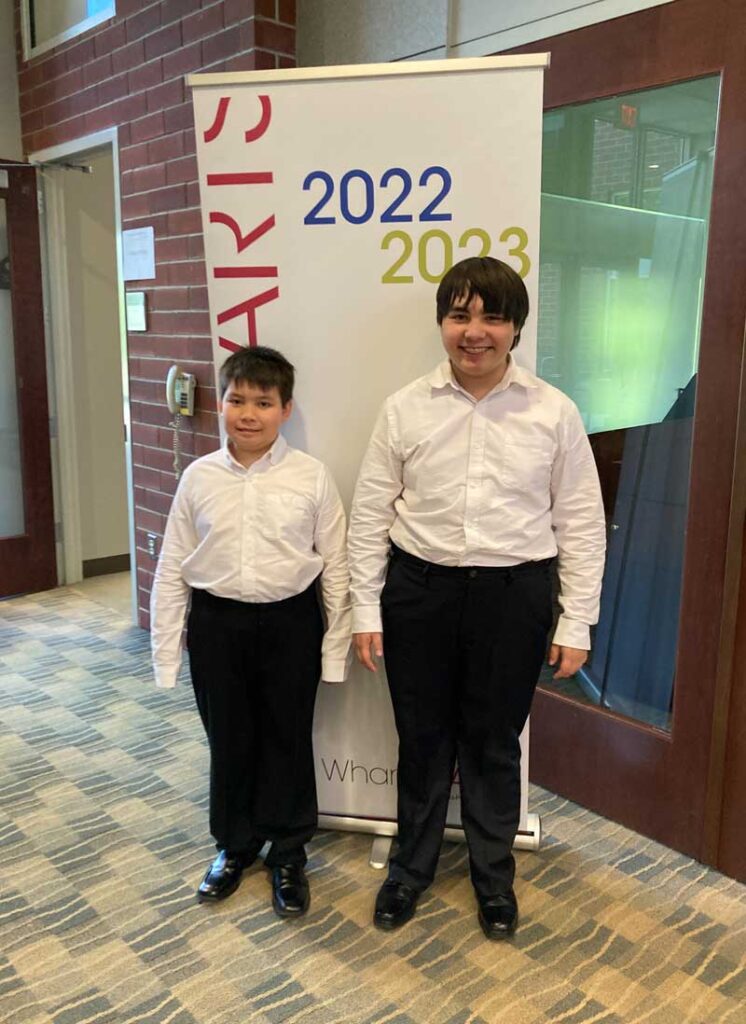
A Message from NJYS Parent Belinda Hock
According to studies, neurodivergent children are less likely to participate in performing arts or community-based events than neurotypical children, due to a combination of social, physical, and economic barriers, and fewer available supports. Often, there are preexisting socioeconomic preconceptions on what the arts are, and who they are for. When a neurodivergent child participates in the arts, the experience can be truly life-changing for everyone involved. Their inclusion has the potential to promote skills including motor and critical thinking, creativity, focus, vocabulary, cultural awareness, confidence, and self-esteem, as well as fostering inclusion, empathy, and acceptance. All of this can be found in one package! Music education should be available and accessible to all, and Wharton Arts actively works to adopt innovative practices and programming that welcomes neurodivergent students to its community.
Despite being faced with many challenges, my neurodivergent child courageously continues to persist. The violin is his chosen instrument despite the inherent challenges in tackling a complex, nuanced, and technically demanding instrument requiring years of cumulative progressive development. I see courage glint in his eyes when he repeatedly asserts that he’s not a quitter, isn’t daunted by the demands of being a member of New Jersey Youth Symphony, and keeps persevering after having more difficult days than good ones. He has taught us to appreciate and discover that there is more to the world beyond our limited individual perspective.
Making the admission that we, as parents, need help is not easy. We are far from superheroes and certainly do not have all the answers. Asking for help is a sign of strength, not a sign of weakness; it’s a sign of humanness. We are socialized that we need to be self-sufficient and independent, and that we can be bothersome to others if we ask for help. Asking for help is laden with fear of being perceived as weak, incapable, and imposing on others. We are wary of feeling vulnerable, experiencing rejection, or being seen as a burdensome member of the community rather than a productive one.

As a parent of a neurodivergent child, I had to acknowledge that for him to reach his maximum potential for success at NJYS, we needed to set aside numerous misconceptions about accepting help. Was it fearful swallowing and making that first tentative step out into the vulnerable unknown? Oh yes, it was terrifying at the start. Was it worth it? Without a doubt, absolutely.
Wharton Arts has clearly shown its commitment to offer accessible, high quality performing arts education that sparks personal growth and builds inclusive communities. Their mission and goals proudly state that they offer “performing arts education to the tune of Excellence, Enrichment, and Equity. Wharton Arts is committed to fostering an inclusive and supportive community, where neurodivergent students are welcomed, nurtured, and valued. We expect every member of our organization to wholeheartedly embrace and celebrate each individual’s unique learning style and gifts.”
NJYS asked “How?” How can we help him? How can we support his needs? How can we best create an environment to help him learn? How can we help him feel safe? They showed their willingness to think outside of the box and develop a collaborative, highly personalized plan to support our child. This included: adopting some of the supports our child had in school, such as a rehearsal behavior checklist; movement breaks; organizing schedules during concerts to minimize stressful downtime periods; and the most wonderful support of all: finding an angel in the form of a vibrant, empathetic high schooler from Youth Symphony who was deeply committed to working with neurodivergent children, and was willing to support our child during rehearsals. At the very heart of the successful implementation of his support plan was constant, open communication. Without this critical detail, none of this would have been possible.
By sharing our story, if there is another parent in the Wharton Arts community reading this, and if any of these words ring true for your child participating in the performing arts, my hope is for you to find the same courage to admit that help is needed, and I can assure you that it is available from this very community that champions inclusion.
Our family cannot be more grateful for the help of Wharton Arts. You have shown us your compassion and dedication to understanding the unique needs of neurodivergent students. Your willingness to listen, explore, and create a supportive and inclusive safe haven for our child is truly admirable. We are grateful for all that you do, and for the positive impact you have made on our child’s life. Your commitment and enthusiasm to make a difference in our child’s life is truly inspiring. Thank you for being an a truly exceptional organization.
Thank you Wharton Arts, for embracing and supporting us in this wonderful community. We are enormously grateful for your unlimited compassion, enthusiasm, and collaborative spirit.